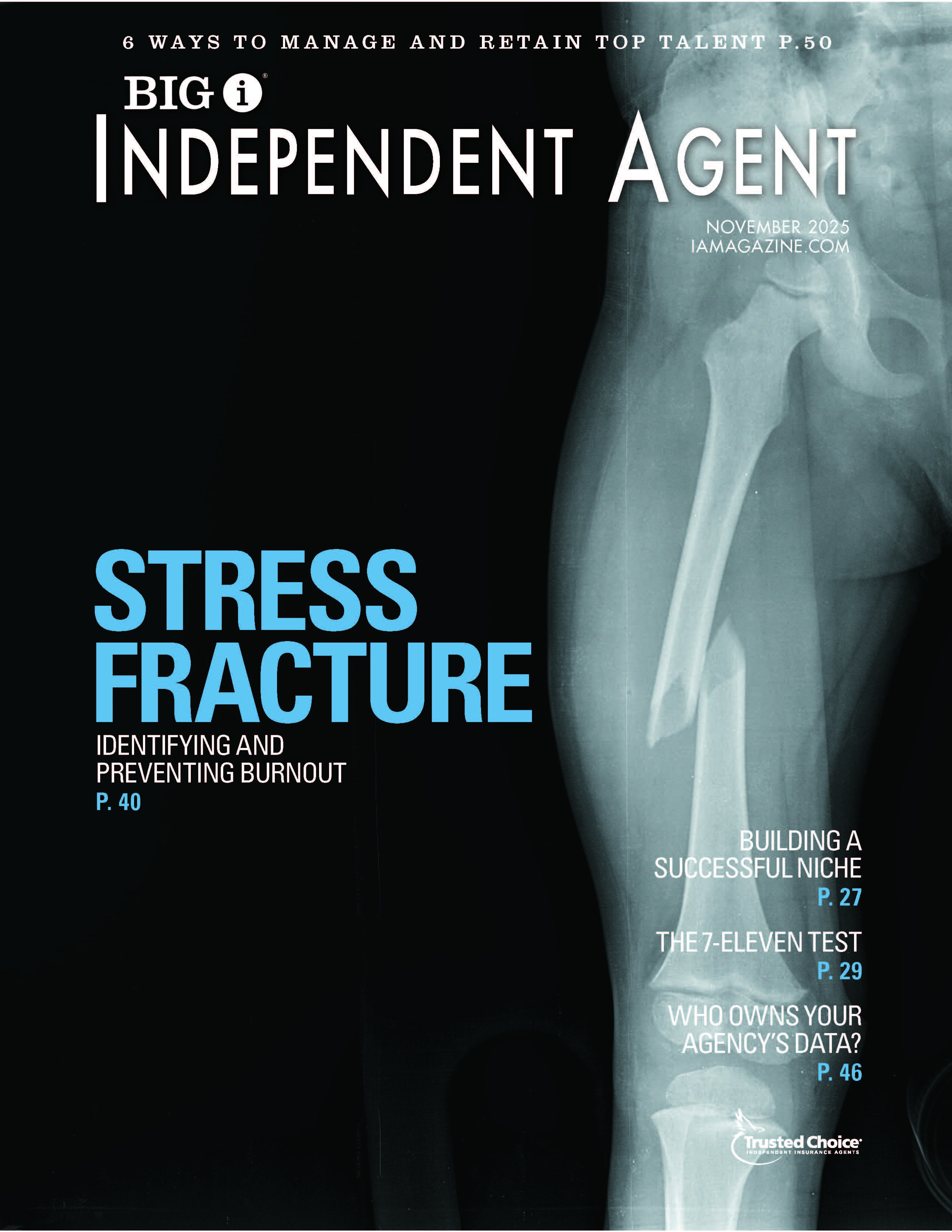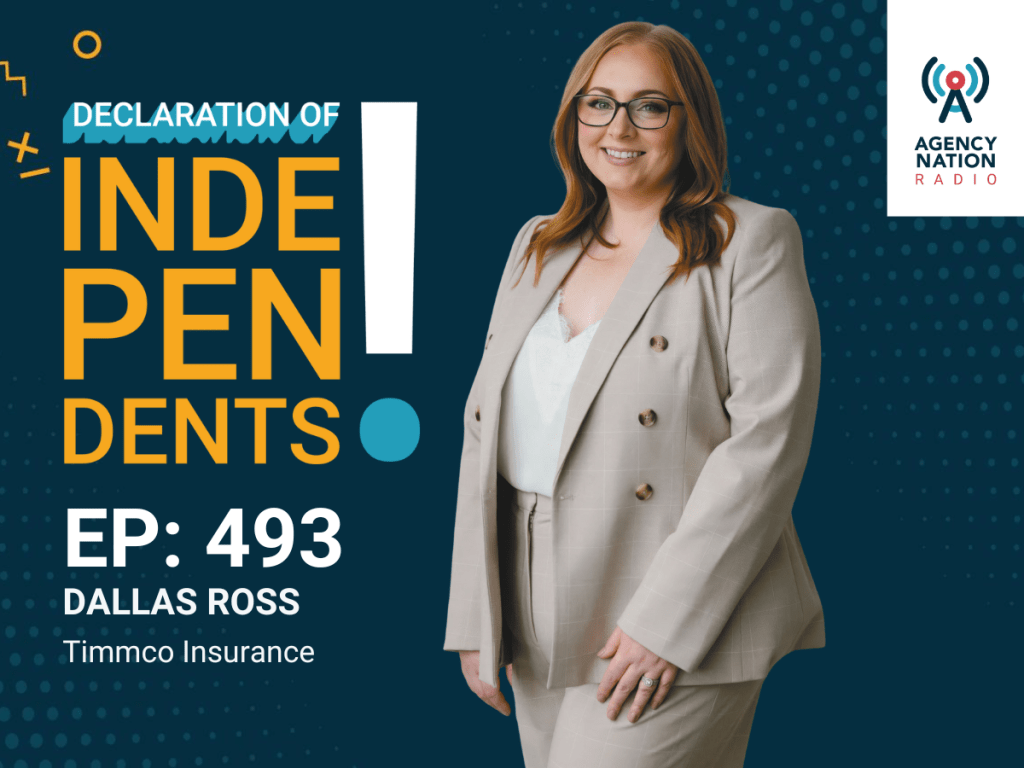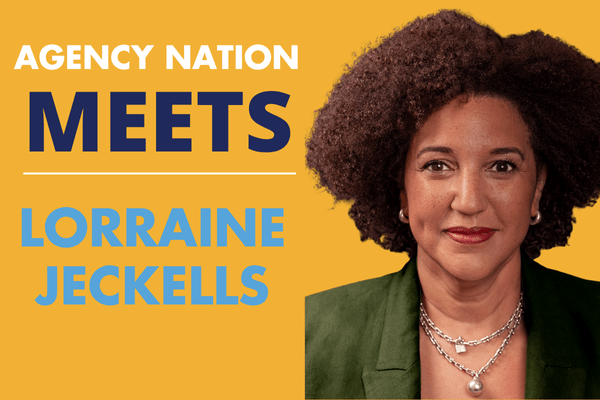4 Ways to Drive Small Commercial Leads Through Web Optimization

By: Stacie Cooper
By 2025, 80% of business-to-business sales interactions will occur in digital channels, according to the Gartner report, “The Future of Sales in 2025.” Small commercial clients are no exception to this. They are increasingly shopping online for insurance and expecting streamlined digital experiences to complement the expertise and guidance they get from an agent.
The Liberty Mutual 2023 “Agency Growth Study” found a strong correlation between fast-growing, small commercial insurance agencies and investments in digital marketing and other technologies.
Also, in the hard market, it’s more important than ever for insurance agencies to highlight their unique value, meet customer needs and operate efficiently. Plus, with hard market conditions being particularly acute in the personal lines space, focusing efforts on driving small commercial leads is a great way for agents to diversify their book.
Here are four ways agents can optimize their web presence to attract new, small commercial leads:
1) Create dedicated product pages on your website. The higher your agency website ranks on Google, the easier it is for people to find it online. Google constantly scans websites to find out what they’re about and how helpful they are to people searching. If your website has answers to common search terms, Google will elevate it in search results. Having unique product pages for every line of business your agency sells is a great way to achieve this.
However, how you structure these pages determines their success. Each product page should have a short, descriptive URL structure, page header and tab title. Think carefully about these words because they will appear on the tab when your webpage opens to signal to visitors and Google exactly what the page is about. Each page should also have keyword-rich content and include language that small business owners would use. Think about what your own clients would type into a search engine and reflect that language on your pages. That way, the next time a small business owner searches for “cyber insurance,” your product page might pop up in their results.
2) Start blogging. Blogging is a great way to add fresh and relevant content to your agency website on a consistent basis, which is something Google factors into your website ranking. Because Google crawls sites regularly, add a blog post about once per month.
When considering blog ideas, address questions people would type into Google. For example, a blog post entitled “What kind of insurance do electricians need?” or “How much does restaurant insurance cost?” increases the likelihood that Google will surface your website in response to search queries. Your email inbox and “Sent” folder are great places to get a refresher on the types of questions you receive from current and prospective clients. Only two or three paragraphs on each topic is sufficient.
Like your product pages, use descriptive URL structures, page headers, tab titles and keyword-rich content. One good-quality blog post can serve for years to come. It will continue to generate website traffic from Google searches, and other companies may even back link to it from their websites.
For an extra boost, answer the same question in video format, add it to your agency’s YouTube channel, and then embed it on the blog page. YouTube is another highly trafficked site that will serve up your content to prospective clients. Plus, Google owns YouTube and may rank websites higher when they’re using both channels effectively.
3) Leverage local search engine optimization. In 2022, 87% of consumers used Google to evaluate local businesses, up from 81% in 2021, according to 2023 research by marketing software creator BrightLocal. In 2023, separate research by BrightLocal found that the top three most trusted platforms for researching local businesses were Google (66%), Google Maps (45%) and a business’ own website (36%).
This points to the importance of local search engine optimization (SEO) and having a digital strategy that helps you rank better in local search results and reach your local audience more effectively. Your agency’s Google Business Profile is one of the most powerful—and free—tools available to help boost local SEO.
To create or edit your Google Business Profile, go to “google.com/business.” From there, you can:
- Add photos and videos. This gives you an opportunity to project your brand and make a good first impression. Plus, Google’s algorithm will take note of this extra content and factor it into your website’s ranking.
- List services and products. Enter your business category, and, from there, add the services you offer, such as “small business insurance,” as well as the products you sell, with descriptions, photos and product page links.
- Utilize online booking tools. To help with conversion, make it easy for people to reach your agency. You can add a link to your Calendly or other booking application tool so business owners can schedule time with you in just a few clicks.
- Engage with reviews. As many as 76% of consumers “regularly” read online reviews when browsing for local businesses, according to the “BrightLocal 2023 Local Consumer Review Survey.” Encourage clients to leave reviews on your agency’s Google Business Profile, and consider using automated text or email services to remind them to leave a review the day after their visit. Many agents I’ve worked with see success when they respond to every review, whether it’s positive or negative. A genuine “thank you” goes a long way in solidifying brand loyalty. For negative reviews, consider taking the opportunity to provide more context or follow up privately.
4) Improve your website experience. While these tips will help business owners find your agency online, there are several things you can do to ensure visitors have a great experience with your agency website.
Make sure your website loads quickly, both on mobile and desktop. A B2B site that loads in one second has a conversion rate three times higher than a site that loads in five seconds, according to 2022 research by digital marketing agency Portent. Website speed is also a factor in your Google ranking. Visit “pagespeed.web.dev” and type in your website URL to diagnose performance issues and to see how your website ranks for speed, accessibility, SEO and more.
For your website’s mobile experience, it’s a good idea to populate the home page with actions that clients can take immediately. Buttons like “Start a quote,” “Service your policy” or “Call/Text” give small business owners the option to self-serve or get in contact with you instantly, leading to a better customer experience and more conversions.
Driving small commercial leads creates big opportunities for your agency. With a little extra effort, tools like your agency website and Google Business Profile can work overtime to bring new customers right to your front door. And once that happens, your success is limitless.
Stacie Cooper is an Agent for the Future Advisor at Liberty Mutual, Safeco and State Auto Insurance.










